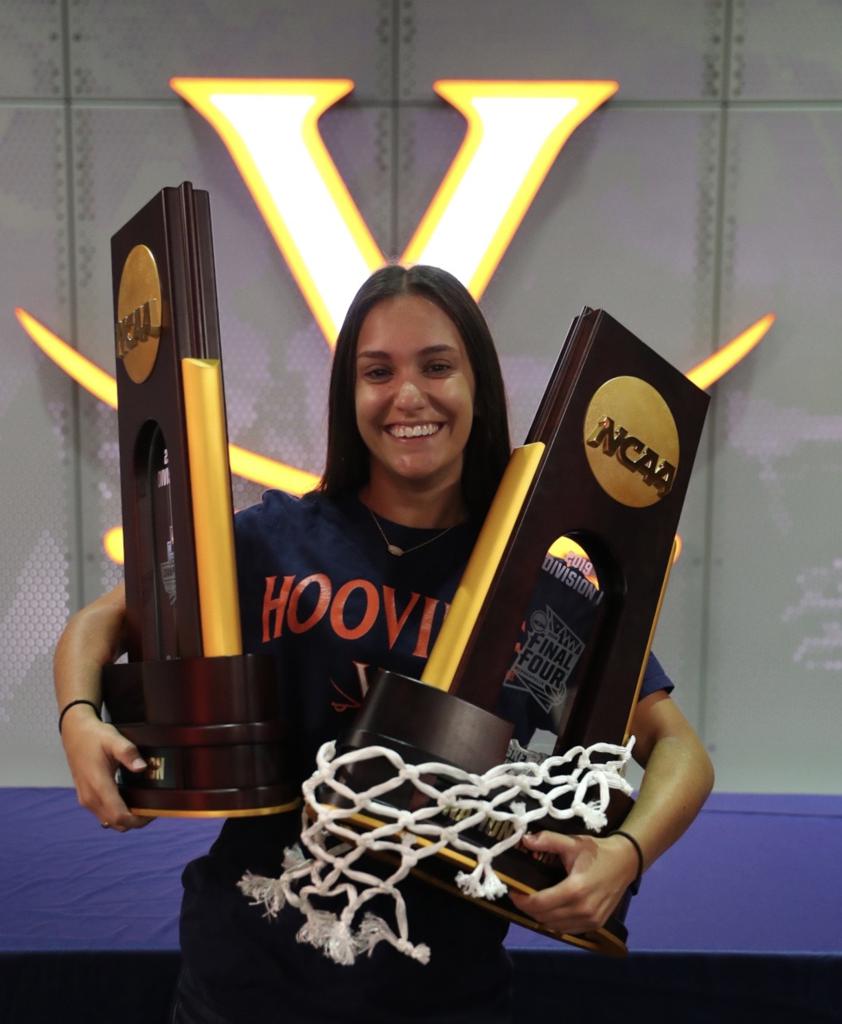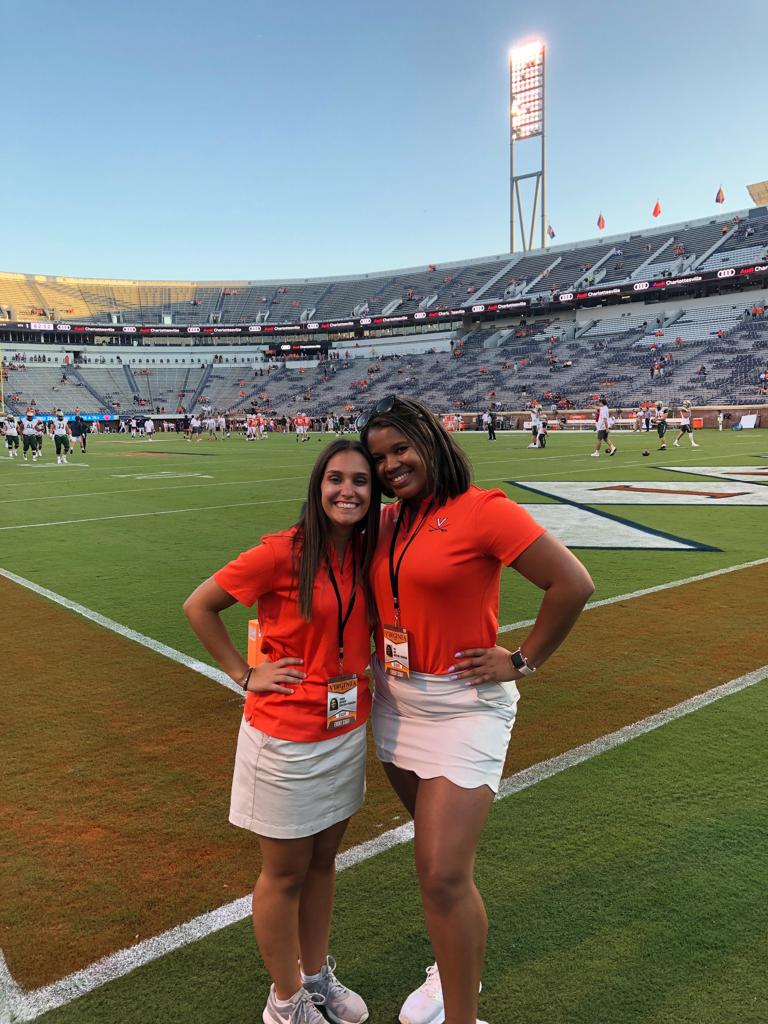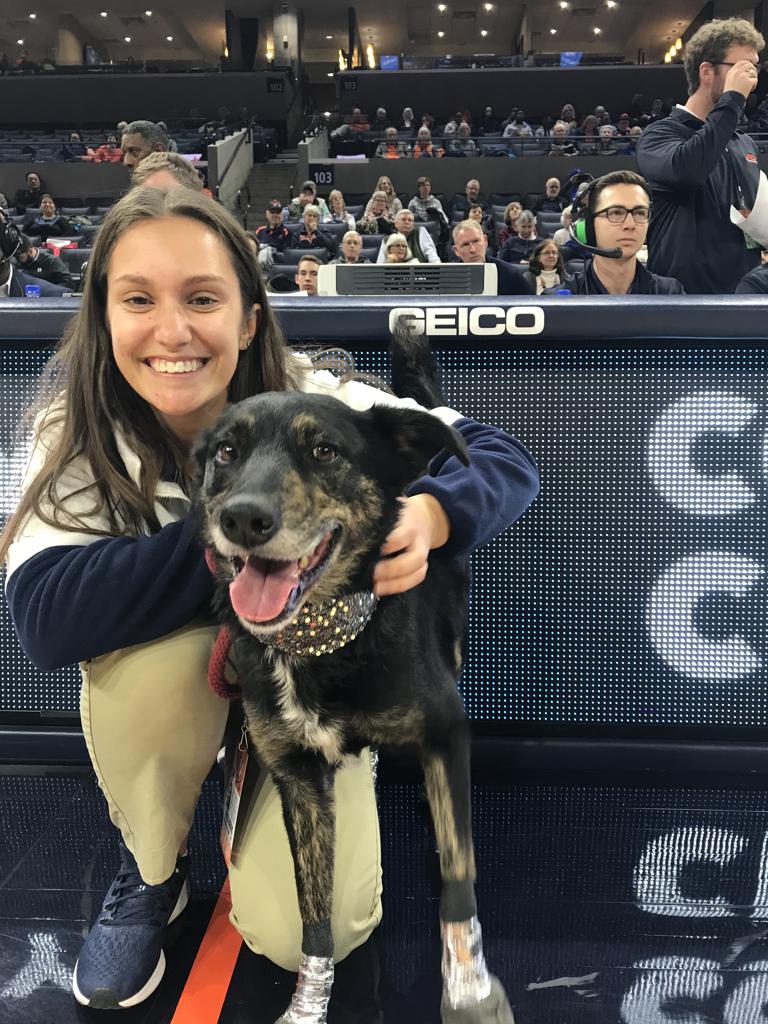In honor of Women’s History Month, the Richmond Kickers are celebrating the women in and around the club that help keep the ball rolling and add that extra special something to the club. In this edition, we spoke with Theresa Matthews, the manager of merchandise and fan experience.

Oliver: What challenges have you had creating merchandise that’s geared towards women in sports?
Theresa: “I think finding designs that are marketable to all people and trying to think about the consumer and who the consumer is, and thinking, ‘are more women purchasing or men purchasing’ and how to find that balance that is equal to all people in that regard.”
Oliver: Would you say that it’s harder for you to create merchandise that is literally catered towards women. When you might have things that sell better to different audiences?
Theresa: “I think jerseys tend to be more catered towards men, not a lot of women, just because of the style that they are. I think it’s a bit difficult to make sure that women still feel comfortable and confident wearing jerseys because everyone can wear them. And I think sometimes it’s a little bit difficult to decide to push the boundaries in orders. Maybe something like a nice soft comfy, t-shirt or sweatshirt that might be more catered towards women or more like feminine stereotyped colors, compared to men colors, because men’s apparel tends to sell more universally than specific things.”
Oliver: How do you go about trying to create merchandise that is inclusive of all women in terms of style, body type, and different cuts or styles of merch?
Theresa: “First of all, I think what do I want to wear and then also what other people want to wear that and what’s the mass appeal. I try to not do anything super specific or limiting in the style of cut and try to have a wide variety of sizes so that everyone can wear it. I’m just making sure that people feel confident in what they’re wearing and confident in helping the team because at the end of the day, I think the merchandise is just another way to show your support for the team, to grow that following and brand recognition.
So, I just try to find what’s kind of simple but gets that point across and is universally acceptable. Also, when reaching out to jersey influencers I want to make sure that there’s a wide variety of people that we’re reaching out to and targeting. So, yes, that soccer-specific group is being targeted but I’m also reaching out to community members and women in our community that are leaders so that you can see everyone represented in a jersey and feeling confident while enjoying wearing and representing the team.”

Oliver: What has been your experience so far working in sports? Any setbacks or interesting things you’ve noticed?
Theresa: “So I have two quick stories. One is that it’s very interesting my time at UVA, during football season, that’s when we had the most interns and needed the most help. Come later in the fall and early spring semester, people start to slack off or can’t follow through with the internship all the way through the season. And it’s very interesting when you see that it tends to be women that stick out the internship all the way through and that there were really only a few guys that stuck it out all the way through and that the internship was very more female heavy than male dominant. Which is pretty interesting when you think about women in sports.
And then also at the University of Virginia, I directed for the games to air on the ACC network. So there was one time when I was the only woman in that control room. I remember being in our meeting before we went on air to talk through all the camera shots and things like that, and one guy stopped and said, ‘this is so great to see more women in this.’ So that was a big instance where I saw how there is that disparity between men and women in sports. I think you see it in some parts of the industry more than others.”
Oliver: How does it make you feel as a woman who’s already in sports to know that the future is kind of changing already and we are seeing more women as sports reporters or broadcasters? What would you say you look forward to in the future of women in sports?
Theresa: “I think it will be interesting in the more male-dominated sports, to see women getting those leadership roles and succeeding in them too. I think the women’s national team, their work to have equal pay, I think is a really important fight. So that will be really interesting to watch over the next months. But that’s really exciting to see because I think that shows you how sports can play a bigger role in society being that driving force for more equality among people.”













































































































































































































































































